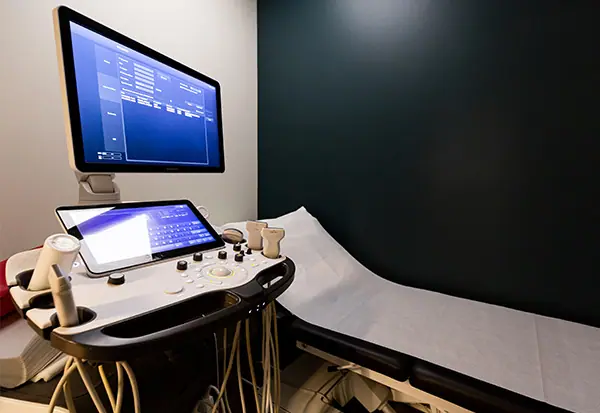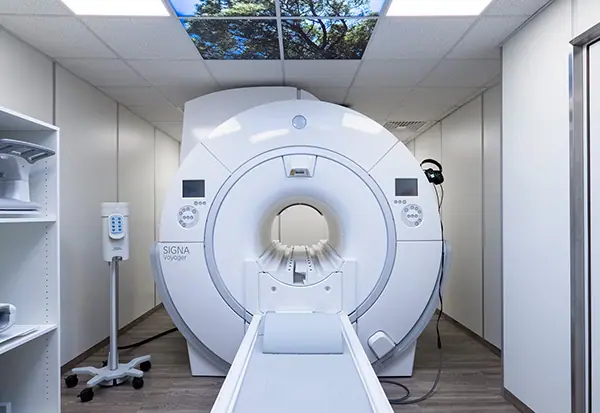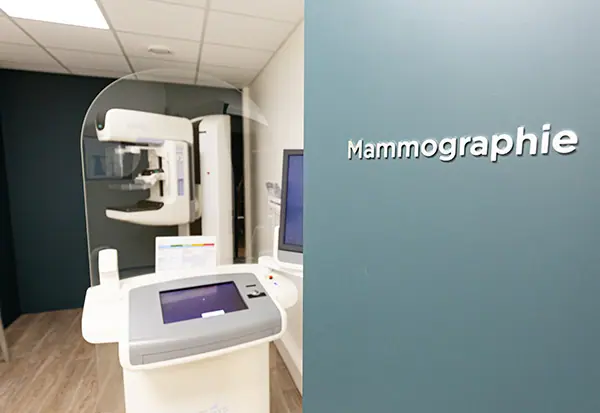CT Scan
A CT scan, also known as a computed tomography (CT) scan, is an examination that uses X-rays. It produces very precise cross-sectional and 3D images of the organs of the human body. The device emits X-rays that revolve around the patient. This makes it possible to obtain a 3D image of the entire area explored while using protocols that limit the dose of X-rays. In some cases, the scan requires the injection of an iodine-based contrast agent (specific for X-rays).
- CT scan for adults and children
- Cardiovascular imaging (angio-scan and coro-scan)
- Digestive imaging (virtual colonoscopy, entero-CT, abdominal CT)
- Neurological and spine imaging
- Osteoarticular imaging (including arthro-scanner)
- Lung and thoracic imaging (low-dose or injected CT)
- Urogenital imaging (low-dose CT and uro-scanner)
- Oncology imaging
You must inform the medical team in order to adapt the examination:
- If you suffer from allergies.
- If you suffer from renal insufficiency, diabetes or myeloma.
- If you are pregnant or likely to be pregnant.
If you are on anticoagulant therapy, please inform our receptionists when you make your appointment and the medical staff when you arrive for your appointment.
- Allow 30-45 minutes.
- Report any allergies at the time of the appointment.
- For abdominal or thoracoabdominal scans, fast at least 4 hours before the exam.
- For virtual colonoscopies, a preparation, its protocol, and explanations will be sent to you a few days before the examination.
- Previous images corresponding to your pathology
- A list of your medications
- The examination form signed by the prescribing physician
- Your health insurance card or, in case of an accident, the claim number
The examination itself lasts between 15 and 30 minutes and is not painful. You will lie on an examination table and must remain still for the duration of the procedure. When the exam begins, the table moves forward into a machine shaped like a short, open, shallow tunnel. Depending on the area being examined, your arms will be placed at your sides or behind your head. The transmitter ring will begin to rotate around you. You will not see it but you will hear it. Immobility is required during the examination. In particular, you must hold your breath at certain times.
A contrast agent (iodine-based) may be injected during the examination; this gives a sensation of heat and may cause a taste in the mouth. This product is normally well-tolerated, however an allergic reaction may occur. If you have allergies or have had a bad allergic reaction in the past, talk to the medical team.
Rest assured, you are not alone, the medical staff can see and hear you.
If you have been given a contrast agent, remember to drink about 1.5 liters of water over the day following the examination to eliminate the agent.
At the end of the examination, your images will be given to you or sent directly to your prescribing physician with the results.
Rive Gauche:
GE Optima 660 ASIR
Rive Droite:
GE Revolution Evo EL EX



